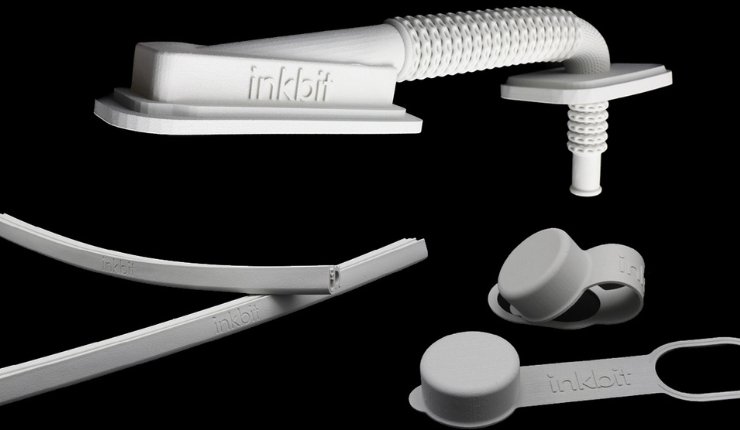
Inkbit has announced the availability of its new TEPU 50A elastomer. TEPU 50A is a thiol-ene polyurethane-based elastomer with a Shore 50A durometer and low compression set that offers ‘excellent’ UV stability and strong chemical compatibility according to Inkbit.
TEPU 50A is the latest addition to the Inkbit Vista ecosystem, and was developed in response to customer requests for a Shore 45-55A elastomer that could accurately produce intricate detail in a wide range of geometries with excellent surface finish and elastic resilience says the company.
TEPU 50A is the second elastomer to be offered by Inkbit, following the TEPU 30A, which is formally known as the Vulcan Soft Elastomer 30. Inkbit says the new material is ideal for demanding applications that require a medium-soft shore hardness and optimal sealing and compression attributes. The company also claims that TEPU 50A is ideal for replacing or prototyping soft rubber components, silicones, or moulded TPUs that require precision and detailed features.
“Sourcing low-volume, rubber like components is a constant challenge for organisations. Traditional methods are expensive in small quantities and can take several weeks or months to procure, directly impacting overall production timelines,” said Maximillian Neck, CEO of ProductionToGo. “Before TEPU 50A, we couldn’t find a soft 3D printed elastomer option that combined good surface finish accuracy, fine detail reproduction, and stable mechanical properties to mimic nitrile rubber or moulded TPU. We are excited about having this option available.”
Inkbit Co-Founder and CEO Davide Marini added: “TEPU 50A is the culmination of years of chemistry and process development driven by customers searching for an alternative to moulded or cast silicones and rubbers for prototyping and beyond. Our novel thiol-ene polyurethane-based chemistries enables us to print soft but resilient elastomers that are UV stable and have excellent chemical compatibility.”
Inkbit says that TEPU 50A’s part properties are highly stable due to a powerful thiol-ene chemical reaction during the print process, and Inkbit’s Vision Control Jetting (VCJ) with closed-loop feedback control ensures parts are built quickly and accurately every time according to the company.
In the development of TEPU 50A, Inkbit says it targeted properties similar to those found in nitrile rubber aand silicone applications in automotive and various other industrial applications where flexibility, sealing and surface quality were critical.




